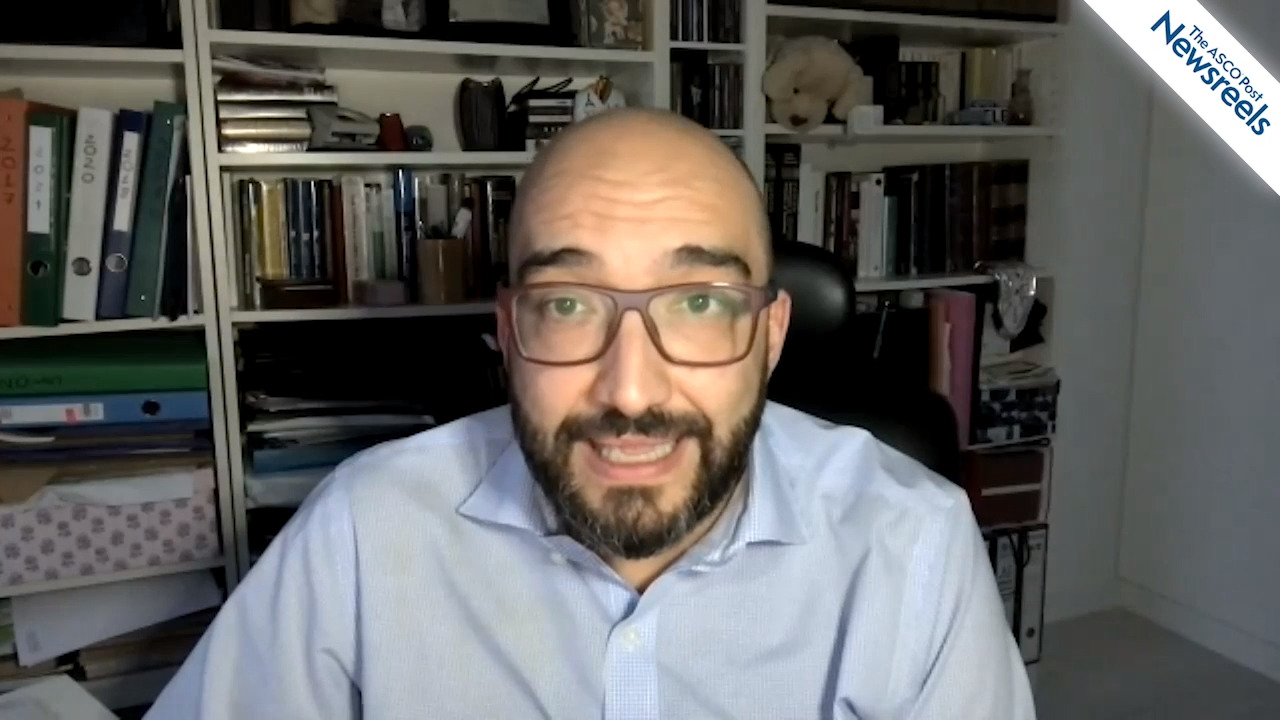Lipika Goyal, MD, on Treating Intrahepatic Cholangiocarcinoma With Futibatinib
AACR Annual Meeting 2021
Lipika Goyal, MD, of Massachusetts General Hospital, discusses phase II results of the FOENIX-CCA2 trial, which explored the clinical benefit of futibatinib, an FGFR1–4 inhibitor, tested in patients with intrahepatic cholangiocarcinoma that harbored FGFR2 gene fusions or other rearrangements (Abstract CT010).
The ASCO Post Staff
Enrique Grande, MD, PhD, of The University of Texas MD Anderson Cancer Center, Madrid, discusses phase III overall survival results from the IMvigor130 study of atezolizumab plus platinum and gemcitabine vs placebo plus platinum and gemcitabine in patients with previously untreated metastatic urothelial carcinoma (Abstract CT187).
The ASCO Post Staff
Dennis J. Slamon, MD, PhD, of the UCLA David Geffen School of Medicine, reflects on the ways in which breast cancer research pioneered the targeted treatment approach, as understanding of the basic biology of tumors deepened and new pathways were uncovered. He sees a future ripe with possibilities for new molecular targets to further improve outcomes for patients with breast cancer and other types of tumors.
The ASCO Post Staff
Matthew J. Matasar, MD, of Memorial Sloan Kettering Cancer Center, discusses phase III results of the CHRONOS-3 trial, which showed that copanlisib plus rituximab led to a 48% reduction in the risk of disease progression or death compared with placebo plus rituximab in patients with relapsed indolent non-Hodgkin lymphoma (Abstract CT001).
The ASCO Post Staff
Joann G. Elmore, MD, MPH, of the UCLA Fielding School of Public Health, discusses previous studies that show wide variability in cancer diagnoses, the uncertainties introduced by computer-aided detection tools, and new research on artificial intelligence and machine learning that may lead to more consistent and accurate diagnoses and prognoses, potentially improving treatment (Abstract SY01-03).
The ASCO Post Staff
Michel Sadelain, MD, PhD, of Memorial Sloan Kettering Cancer Center, discusses the challenges in developing CAR T-cell therapy, as well as the progress being made, such as creating hybrid CAR and T-cell receptors that should enable T cells to recognize much lower levels of antigens. The field, he says, is poised to take on a range of solid tumors to extend the successes in hematologic malignancies.





